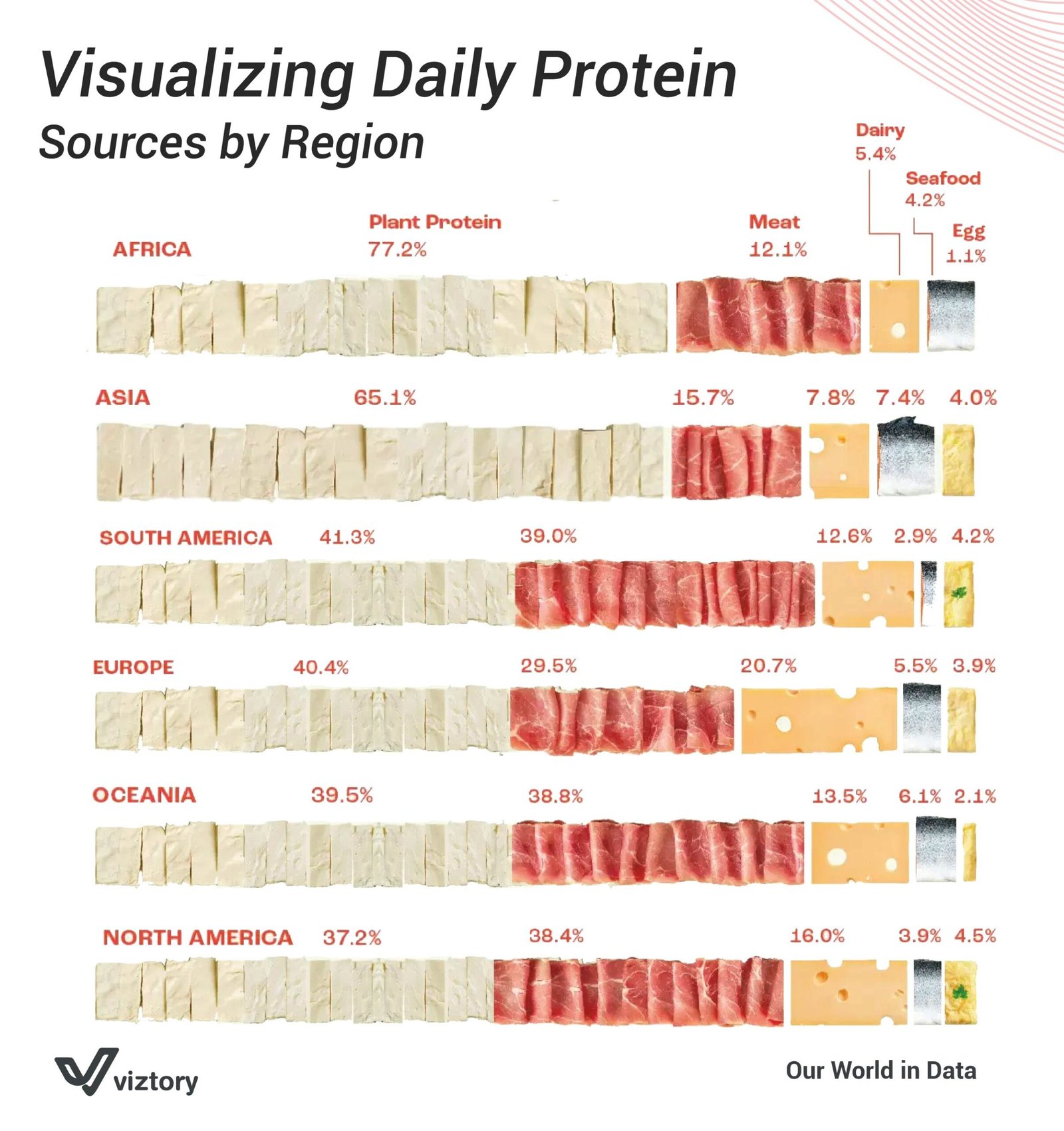The Importance of Diversifying Protein Sources in Healthcare
-
Aug, Wed, 2024
The Importance of Diversifying Protein Sources in Healthcare
Protein is one of the essential nutrients that plays a crucial role in building and repairing tissues in the body, supporting the immune system, and producing hormones and enzymes. However, obtaining protein from diverse sources is key to achieving a healthy balance, as illustrated in the attached image, which highlights the differences in protein sources across continents.
Diversity in Protein Sources by Region
-
Africa and Asia: These regions rely heavily on plant-based protein, with 77.2% and 65.1% respectively. This indicates the availability of protein-rich plant sources like legumes and grains in traditional diets. This dietary pattern can be beneficial in reducing the risk of chronic diseases such as heart disease and diabetes due to the lower consumption of saturated fats found in animal protein.
-
Europe and North America: The image shows that the populations in these regions have a balanced intake of plant and animal proteins. However, the greater reliance on animal protein may lead to an increase in cholesterol and saturated fats, requiring greater awareness of the importance of reducing these sources and increasing reliance on plant protein to improve overall health.
-
Oceania: This region exhibits a close balance between plant and animal protein sources, with a slight lean toward animal protein. This region could benefit from promoting the use of plant-based protein sources to maintain heart health and reduce the risks associated with a diet rich in meat.
The Role of Healthcare in Promoting Dietary Diversity
Healthcare plays a critical role in educating individuals about the importance of diversifying protein sources in their diet. Healthcare professionals should encourage patients to:
- Increase plant-based protein consumption: This can reduce the risk of chronic diseases, improve digestion, and enhance overall health.
- Moderate animal protein consumption: To avoid health issues related to saturated fats and cholesterol.
- Encourage dietary diversity: To ensure a complete range of essential amino acids necessary for the body’s health.
Conclusion
Maintaining overall health depends on achieving an appropriate dietary balance that includes a variety of protein sources. Given the variation in protein sources across regions, health guidance must consider the dietary and cultural habits of each region to promote health and reduce disease risks.

